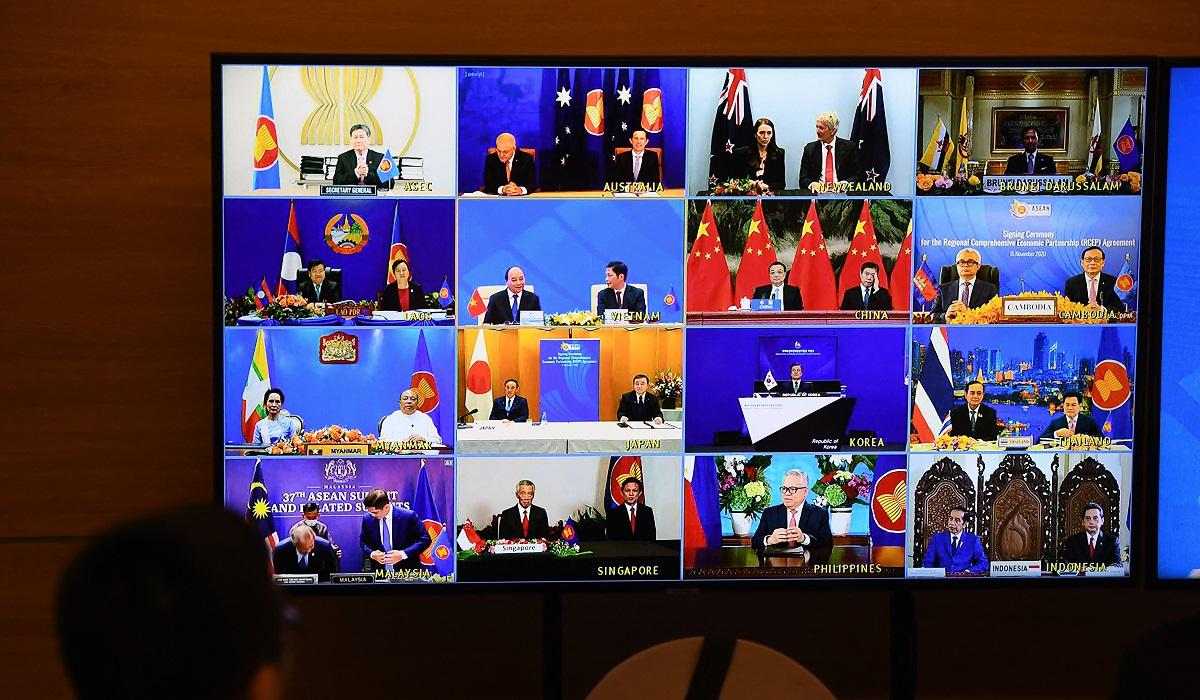DTI calls on Senate to immediately give nod to RCEP trade deal

The Department of Trade and Industry (DTI) is calling on the Senate to give its nod to the Regional Comprehensive Economic Partnership (RCEP), which is set to take effect on January 1, 2022 and to which the Philippines is a signatory.
Treaties or international agreements entered into by the government require Senate concurrence.
At present, six Association of Southeast Asian Nations (ASEAN) member states—Brunei, Cambodia, Singapore, Lao PDR, Thailand, and Vietnam—and ASEAN Free Trade Partners Australia, China, Japan, and New Zealand have already deposited their respective Instruments of Ratification.
The RCEP will enter into force 60 days after the date at which the minimum number of Instruments of Ratification/Acceptance (IOR/A) are received. This means that the mega trade deal shall enter into force on January 1, 2022.
The RCEP was ratified by the Palace in September and brought to the Senate for concurrence.
Members of the Senate foreign relations committee began deliberations on the RCEP early last month.
As the entry into force of the agreement gets closer, the DTI is asking the Senate for the immediate concurrence of the RCEP agreement.
Trade Assistant Secretary Allan Gepty said the gains and opportunities that the agreement will create cannot be overemphasized.
“The size of the market alone and the extent of economic activities happening in the region demands that the country must be part of this free trade area. This is not to mention that this is an ASEAN-led FTA”, Gepty added.
More than being the largest free trade area, the DTI said RCEP represents 50% of the global manufacturing output; 50% of global automotive output; 70% of electronics; 26% of Global Value Chain (GVC) Trade Volume; 60% GVC for Electrical/Machinery, Petroleum/Chemicals, Textile/Apparel, Metal & Transport Equipment, 35% Contribution to Global Exports of Electronics and Machineries; and the main GVC hubs of big economies such as South Korea, Japan and China.
For the Philippines, it said the RCEP is expected to generate a 10.47% increase in the country’s exports and 2.02% increase in real gross domestic product.
In November last year, Lopez signed the RCEP trade pact on behalf of the Philippines at the conclusion of the 37th ASEAN Summit and Related Summits.
The DTI had expected the Senate to ratify it in November.
RCEP is a trade accord that involves the 10-member ASEAN along with China, India, Japan, South Korea, Australia, and New Zealand.
India was initially included in the negotiations for the trade deal, but eventually pulled out in 2019 reportedly over various concerns, including possible influx of cheap Chinese products.
The RCEP will facilitate free or liberalized and simplified trade among the participating nations in the Trans-Pacific Region.
“The government together with key economists and experts have shown the net benefits of being part of RCEP and its positive contribution to GDP (gross domestic product) and trade, and conversely, the negative impact on growth, trade, investments and jobs of delayed or non-participation of the Philippines,” Trade Secretary Ramon Lopez earlier said.
“We should not be left behind. There are enough safety nets to vulnerable sectors and even the exclusions of sensitive lists of agriculture products,” Lopez said.
Rice and other agricultural produce are protected from tariff reductions and eliminations under the RCEP, the Trade department earlier said.
Some experts, however, have objected to the trade deal, warning of risks to local industries. — BM, GMA News




